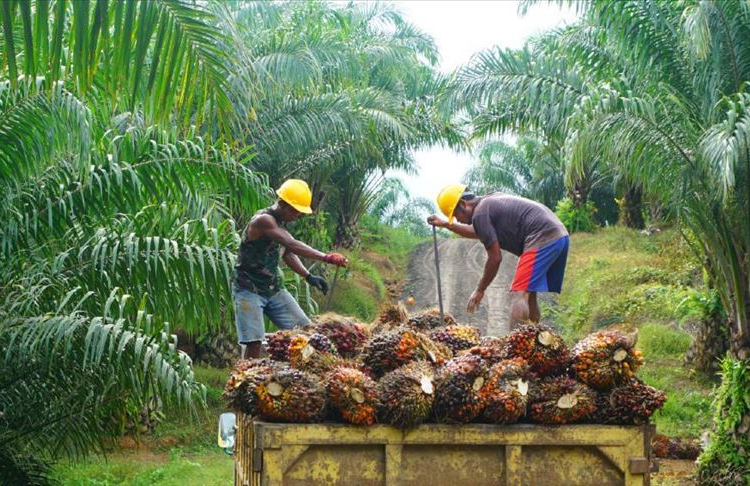Palm Oil imports from Malaysia – a top global producer to Nigeria have surged by 353 per cent in the first four months of 2023 despite local players ramping up production, data from the Malaysian Palm Oil Council shows.
The Nigeria’s palm oil import from Malaysia increased to 92,961 metric tons (MT) between January-April 2023, from 20,513 MT in the corresponding period of 2022, indicating a 72,448 MT increase.
In 2022, the country imported 227,035 MT of palm oil from Malaysia.
Despite moves by the government, in listing crude palm oil alongside other 40 items restricted from forex access, and closing the Nigerian borders, oil palm imports into the country are still on the rise owing to the huge demand-supply gap, according to experts.
“Nigeria’s oil palm imports from Malaysia will continue to increase for the time being because our investment in the industry is still very insignificant,” managing director, Palmtrade and Commodities Development Nigeria Ltd, Henry Olatujoye, said according to reports by BusinessDay.
“We estimated that our local/domestic consumption is averaging 2.4 million tons in a year, and our first-class developers – Okomu, Presco, and others, do not annually produce up to 800,000 tons.
“If we estimate the pocket smallholder farmers to be contributing up to a million tons, we’d still have a shortfall compared to demand,” Olatujoye added
According to the United States Department of Agriculture (USDA), the production of palm oil in Nigeria reached 1.4 million metric tonnes (MT) in 2022, a 9 per cent uptick from 2020/21 when production stood at 1.28 million MT.
In the face of years of stagnant output growth and growing local demand, Nigeria’s production deficit has widened considerably, and on average, over the last five years, around 25 per cent of yearly domestic palm oil consumed in the country was imported.
Based on a USDA estimate, local production accounts for around 78 per cent of consumption, and Nigeria consumed two million MT in 2021, leaving a deficit of 0.6 million MT between 2012 and 2021.
Alphonsus Inyang, president of the National Palm Produce Association of Nigeria said Palm oil prices in Nigeria have gone up and have remained the most expensive in any Crude Palm Oil producing country, due to the high demand for the commodity.
According to him, a metric ton of palm oil sells between N1-1.2 million depending on your location.
In a telephone response, Inyang said the situation is since primary production of palm oil has been seriously neglected by various governments.
“The lack of funding and interest in oil palm production by successive governments has led to the neglect of the sector, and more farmers have lost their livelihood through lack of profit for maintenance/expansion to produce more.”
Globally, palm oil prices fell sharply in May as protracted weak global import purchases coincided with rising outputs in major producing countries, the United Food Agency said in its May global food price report.
The solution to the demand-supply gap, according to Olatujoye, “is our ability to convert our forex to plantation development, under Good Agricultural Practices,” as foods like noodles, vegetable oil, biscuits, chips, margarines, shortenings, cereals, baked stuff, washing detergents, and even cosmetics are made from palm oil.





